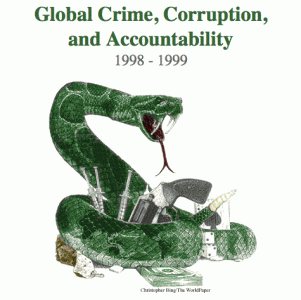- About this Program
- 2012 Conflict in the 21st Century
- 2011 Our Nuclear Age: Peril and Promise
- 2010 South Asia: Conflict, Culture Complexity, and Change
- 2009 Cities: Forging an Urban Future
- 2008 Global Poverty and Inequality
- 2007 Global Crises: Governance and Intervention
- 2006 The Politics of Fear
- 2005 Oil and Water
- 2004 Dilemmas of Empire and Nation Building
- 2003 Sovereignty and Intervention
- 2002 Global Inequities
- 2001 Race and Ethniciity: A Global Inquiry
- 2000 Global Games: Sports, Politics, and Society
- Symposium
- 1999 Global Crime, Corruption, and Accountability
- Class
- International Symposium
- Special Events
- Workshops
- 1998 Exodus and Exile: Refugees, Migration, and Global Security
- 1997 The Future of Democracy
- 1996 Religion, Politics, and Society
- 1995 20/20 Visions of the Future
- 1994 Ethnicity, Religion and Nationalism
- 1993 Transformations in the Global Economy
- 1992 - International Security: The Environmental Dimension
- 1991 Confronting Political and Social Evil
- 1990 The Militarization of the Third World
- 1989 Drugs, International Security and U.S. Public Policy
- 1988 Foreign Policy Imperatives for the Next Presidency
- 1988 Covert Action and Democracy
- 1987 The West Bank and Gaza Strip
- 1986 International Terrorism
- News
- Press Clips
- Calendar
- Resources
EPIIC Archives
1999 Global Crime, Corruption, and Accountability

|
|
Official corruption -- the misuse of public power for private profit or political gain -- can represent a universal threat to democracy and development and a hazard to international free trade and investment. In particular, in collusion with international crime, corruption can pose a great danger to global and individual security, public health and safety. Few issues affect citizens more. In the vortex of globalization, failed states and the contradictory forces of anarchy and international law, this symposium explored the "corruption eruption", from the Russian Mafiya to Suharto's legacy in Indonesia. We also explored the processes and impact of allegedly increasingly integrated criminal networks, such as the Columbian narcotics cartels. What are the risks of unconventional dangers such as the illicit trafficking of drugs, people and biological, chemical, and nuclear materials? What threats are posed by cybercrime, encryption, offshore banking, and financial speculation? Given the intensifying debates over secrecy and sovereignty and the calls for cross-border governance, we looked at the effectiveness of anti-crime and anti-corruption strategies, from multilateral strike forces to NGO initiatives. We also looked at the dilemmas posed by the grim legacies of state crimes committed by former repressive regimes from South America to South Africa, as well as of war crimes from World War II to Rwanda. What are the imperatives and the limitations of accountability? What is the potential for an international criminal court? Of newly emerging international legal norms and regimes? Finally, we were pleased to award this year's Dr. Jean Mayer Global Citizenship Award to both Luis Moreno Ocampo and Wole Soyinka. Mr. Ocampo played a crucial role in the Argentine democractic transition as the Prosecutor of the Argentine Military leaders responsible for the Malvinas/Falklands War, of the junta that ruled the country from 1976-83, and of the chief of police of Buenos Aires in 1986. Mr. Soyinka received the Nobel Prize for Literature in 1986, and has been imprisoned and exiled for his work as a staunch pro-democracy advocate in Nigeria. We also recognized Chinese dissident Wei Jingsheng, human rights and democracy youth organizer Hafsat Abiola, former Senate investigator Jack Blum, and Italian prosecutor and anti-corruption judge Gherardo Colombo.

